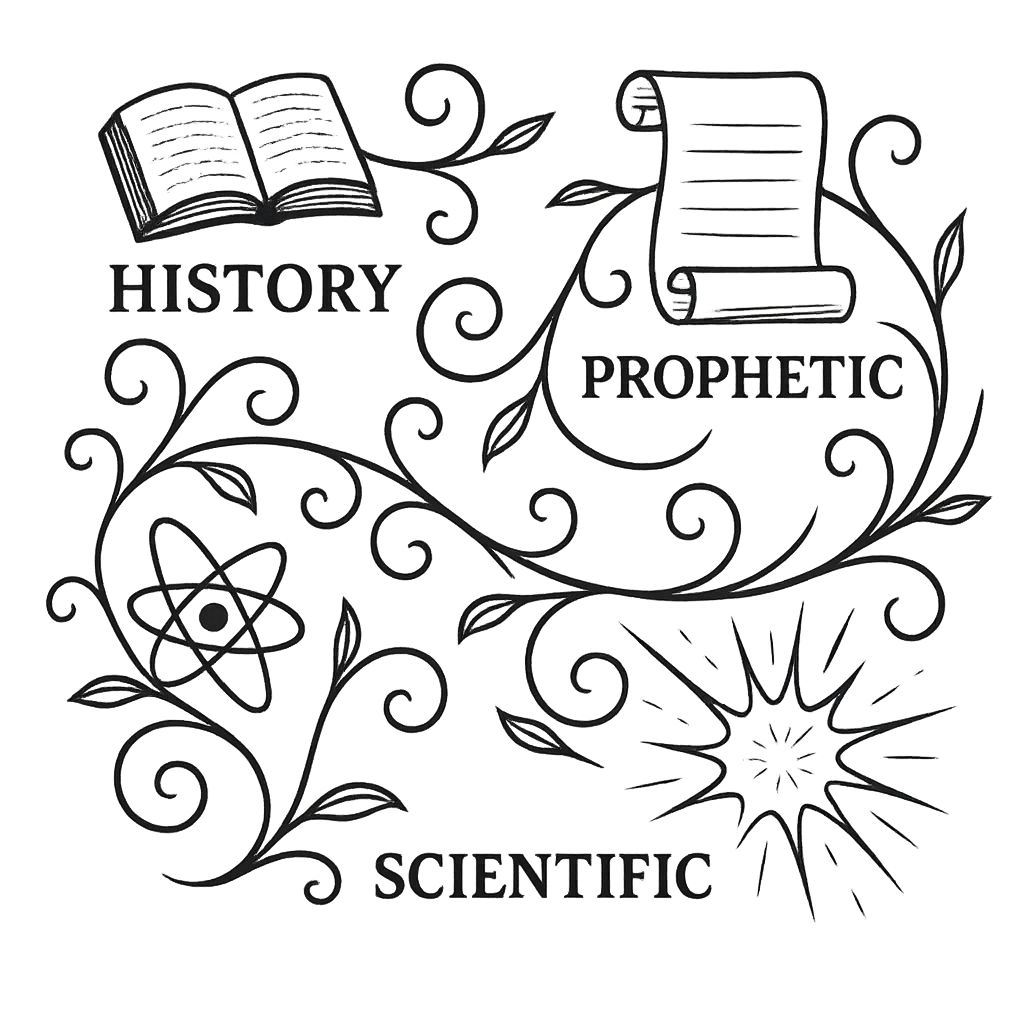Author: Matthew Frisbee
-
The Virgin Birth of the Universe: Why Naturalism Doesn’t Add Up
— by
in ScientificMost people associate the phrase “virgin birth” with Christianity: the miraculous conception of Jesus, born of a young woman without a human father. To skeptics, that sounds like a leap of faith. But what if I told you atheism has its own version of a virgin birth? According to most atheistic or naturalistic worldviews, the…
-
Einstein’s General Relativity: Time Had a Beginning
— by
in ScientificWhen Albert Einstein developed his General Theory of Relativity in 1915, he thought he was unlocking a better way to describe how gravity works. What he didn’t expect was that his equations would also open the door to a revolutionary idea: Time, space, and matter all began together. This was not just a tweak in…
-
Galaxy Seeding: The Blueprint for a Habitable Cosmos
— by
in ScientificWhile the universe’s expansion and radiation tell us that it began, the formation of galaxies tells us how it became structured and life-permitting. The process of galaxy seeding, how matter clumped to form stars, galaxies, and ultimately planetary systems, is an extraordinary story of cosmic architecture. 🌱 What Is Galaxy Seeding? “Galaxy seeding” refers to…
-
Radiation Afterglow: The Echo of a Begining
— by
in ScientificOne of the most profound confirmations of the universe’s origin is the Cosmic Microwave Background (CMB) evidence. CMB is the faint thermal radiation that fills the universe and comes from every direction in space. This “afterglow” is often called the radiation echo of the Big Bang. What Is the CMB? ~380,000 years after the Big…
-
Expanding Universe
— by
in ScientificThe expanding universe refers to the observation that space itself is stretching, causing galaxies to move away from each other over time. This was first confirmed by Edwin Hubble in the 1920s, when he observed that the light from distant galaxies is redshifted, meaning they’re receding from us. Key points: 🔍 What Does Expansion Tell…
-
Second Law of Thermodynamics: Why Entropy Implies a Beginning
— by
in ScientificThe Second Law of Thermodynamics states that the total entropy, a measure of disorder or randomness, of an isolated system will increase over time. Entropy can decrease locally (in one part of the system) but only if the surrounding system’s entropy increases by at least as much. In simpler terms, things naturally tend to move…
-
Daniel 9
— by
in Prophecy📌 Introduction: A Prophetic Countdown to the Messiah? Daniel 9:24–27 has long been viewed by many Christian scholars as one of the most remarkable Old Testament prophecies pointing directly to the coming of Jesus the Messiah. The passage refers to “seventy weeks” (Hebrew: shavuim), widely interpreted as seventy weeks of years, or 490 years in…
-
Daniel 9: Exploring Interpretations
— by
in ProphecyThis article serves as a companion and continuation of the main article on Daniel 9. If you haven’t read that overview yet, it’s strongly recommended that you begin there for important background, historical context, and a walkthrough of the seventy weeks prophecy. Here in Daniel 9: Exploring Interpretations, we explore some of the most prominent…
-
Fulfillment of the New Covenant
— by
in Prophecy🧭 Introduction The New Covenant prophecy found in Jeremiah 31:31–34, Ezekiel 36:26–27, and Joel 2:28–29 stand as pivotal promises in the biblical narrative—a New Covenant, written not on stone, like the Old Testament law, but on hearts. These prophetic texts were written approximately 400–800 years before the birth of Jesus, foretelling a radical internal transformation.…
-
Psalm 22
— by
in Prophecy📝 Summary Psalm 22 is one of the most detailed Old Testament passages that prophetically mirrors the suffering, death, and ultimate redemption of Jesus Christ. Written centuries before crucifixion was practiced and long before the birth of Christ, the psalm remarkably parallels the events of Jesus’ final hours down to specific words, gestures, and actions.…
